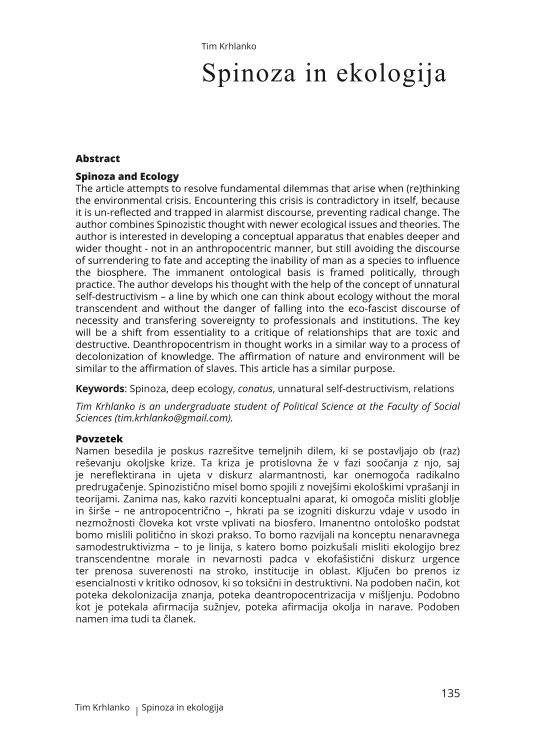The article attempts to resolve fundamental dilemmas that arise when (re)thinking the environmental crisis. Encountering this crisis is contradictory in itself, because it is un-reflected and trapped in alarmist discourse, preventing radical change. The author combines Spinozistic thought with newer ecological issues and theories. The author is interested in developing a conceptual apparatus that enables deeper and wider thought -not in an anthropocentric manner, but still avoiding the discourse of surrendering to fate and accepting the inability of man as a species to influence the biosphere. The immanent ontological basis is framed politically, through practice. The author develops his thought with the help of the concept of unnatural self-destructivism – a line by which one can think about ecology without the moral transcendent and without the danger of falling into the eco-fascist discourse of necessity and transfering sovereignty to professionals and institutions. The key will be a shift from essentiality to a critique of relationships that are toxic and destructive. Deanthropocentrism in thought works in a similar way to a process of decolonization of knowledge. The affirmation of nature and environment will be similar to the affirmation of slaves. This article has a similar purpose.




